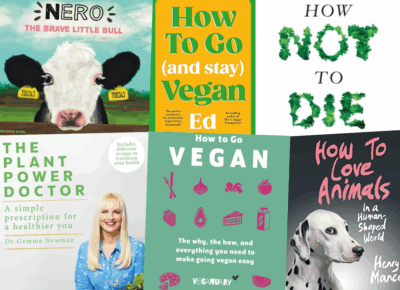What are the best vegan calcium sources and how can we get enough on a plant-based diet?

We absolutely need calcium for strong bones, along with its super sidekick vitamin D which helps us to absorb it, but we don’t need to drink cows’ milk to get it.
Most of the calcium in our bodies can be found in our bones; if we don’t keep our calcium topped up, our bodies use up this store, and that can weaken our bones.
The loss of too much calcium can lead to osteoporosis later in life, so is important to ensure that we get a good supply.
How much calcium do we need?
The NHS recommends 700mg daily for adults aged 19 to 64 and over. Some people need more, including:
- 1250mg for those who are breastfeeding
- 1000-1500mg for those who have coeliac disease
- 800-1000mg for those with inflammatory bowel disease
- Up to 1000mg for those with osteoporosis (if on treatment)
This is not difficult to obtain on a plant-based diet but we do need to know what to eat. It’s also important to avoid calcium ‘thieves’ such as too much caffeine (aim for no more than three cups per day), alcohol, and sodium.
Vegan calcium sources
These are some of the best sources of calcium for vegans, so make sure you include these in your diet:
- Fortified plant milks: 250ml contains 300mg calcium
- Vegan yogurt (if fortified): 150g contains 150mg
- Tofu (choose brands that use calcium to set the tofu): 250g contains 500mg
- Kale: one 80g serving contains 120mg
- Watercress: one 80g serving contains 130mg
- Brazil nuts: 30g contains 130mg
- Pak choi: 100g contains 105mg
- Dried figs: 100g contains 250mg
- Sesame seeds: 1 tablespoon contains 87mg
- Oranges: 1 piece of fruit contains 50mg
Does vitamin D help absorb calcium?
Vitamin D helps absorb calcium, and many people are low in this vital vitamin (particularly in the winter months), irrespective of their diet.
We need to be outside towards the middle of the day with our forearms and legs uncovered without sunblock for around 20 minutes (or slightly longer if we have darker skin).
If this is not realistic, we should supplement to get enough vitamin D, even in summer. A daily supplement is also recommended for everyone – not just vegans – living in northerly latitudes in the winter from late September to early April.
Through the winter, UV-grown mushrooms are probably the best dietary source and can provide a substantial amount of our daily requirements. Other foods are fortified with vitamin D, such as dairy-free margarines, breakfast cereals, and breads.
However, fortified foods are not the best source of vitamin D, regardless of diet, so consider supplementing it year-round. When choosing a supplement, it is important to ensure it is vegan. Vitamin D2 is always suitable for vegans, but vitamin D3 can be derived from animals.
Find out more about getting sufficient vitamin D as a vegan.
This content was reviewed by Claire Lynch, RD and nutritionist Rohini Bajekal from Plant-Based Health Professionals in November 2023. For more information about bone health, see this fact sheet.
|
|
|||||





